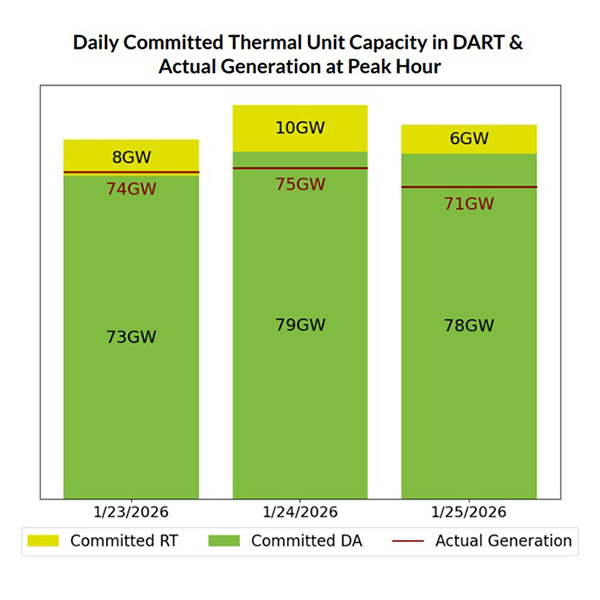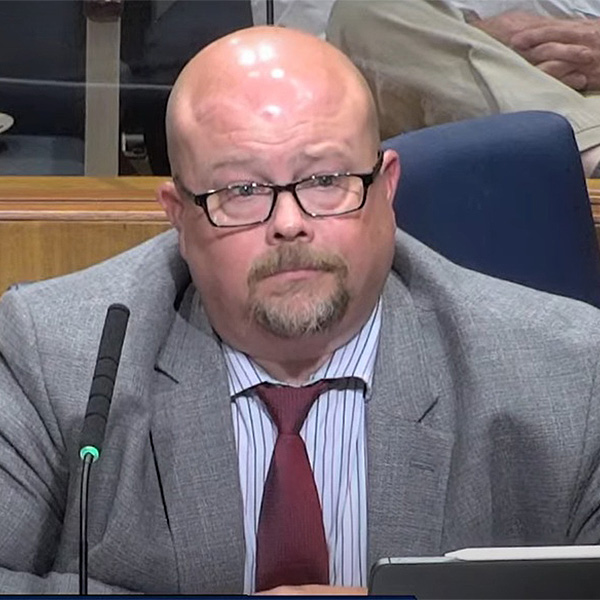FERC has upheld its approval of Constellation Energy’s purchase of Calpine while also addressing arguments that consumer and environmental groups made in requesting a rehearing.
In a joint request, Public Citizen, PennFuture, Clean Air Council and the Citizens Utility Board argued FERC should have gone beyond its standard review practices to review the merger, especially its effects on PJM. The Pennsylvania Office of Consumer Advocate also filed a request, arguing FERC should have reviewed the merger’s impact on the state’s retail power market.
The commission, in an order issued Feb. 19 (EC25-43), disagreed with the groups’ claim that it failed to examine any risks to the market, such as withholding, beyond its normal screens. FERC does so automatically if the combined firms’ generation fails market power screens.
“The commission does not automatically examine whether a proposed transaction will enhance an applicant’s ability and incentive to withhold output when a proposed transaction passes the horizontal competitive analysis screen required by our regulations,” FERC said.
The groups argued that a 2012 order on FERC’s merger policies indicated the commission would go beyond market power screens, but FERC said the context of that was in the event of a screen failure. “Thus, a single sentence in the 2012 order reaffirming commission policy, which affirmed existing commission policy, did not announce a new practice that goes beyond what is set forth in decades of precedent, including Order No. 642, the supplemental policy statement and orders issued subsequent to the 2012 order reaffirming commission policy.”
But FERC said it agreed with the groups that a merger passing a screen does not stymie the commission’s further review, prevent intervenors from raising concerns or relieve merging parties from showing the deal is consistent with the public interest.
“We note that, despite the proposed transaction, with the mitigation plan, not failing the competitive analysis screen, the commission in the merger order still addressed [the groups’] arguments regarding applicants’ alleged incentive and ability to withhold supply in PJM markets,” FERC said.
It noted that in its original order, it had approved an agreement between Constellation and PJM’s Independent Market Monitor to cap the company’s capacity market bids through the 2035/36 delivery year. “The price cap would apply to both the ‘ability’ and ‘incentive’ units owned by Constellation, which should prevent Constellation from engaging in a profitable withholding strategy,” it said.
The groups also were worried the deal would make it more profitable for Constellation to withdraw its nuclear plants from PJM to serve data centers in co-location arrangements because the absorption of Calpine’s fleet would leave it with more generation that would benefit from resulting higher power prices. FERC did not agree with those arguments, saying the group failed to provide enough evidence.
Constellation is considering such deals, but nothing in the case showed the merger would make them more likely to happen, FERC said.
“Concerns about data center transactions, the rules governing them and their potential impact on wholesale markets like PJM are outside the scope of this proceeding,” FERC said.
The Pennsylvania Consumer Advocate’s rehearing request was focused on the state’s default service auctions, in which utilities procure supply for customers who do not shop with competitive suppliers.
The merger proceeding never identified Pennsylvania as a submarket, so FERC said it was appropriate to not review the deal’s impact on default service there. Intervenors can suggest new submarkets, but to be successful, they must show such submarkets are cut off frequently because of transmission constraints, which the state advocate did not.
FERC also noted that it would have reviewed the merger’s impact on Pennsylvania’s retail market had the state’s Public Utility Commission requested it to do so.



